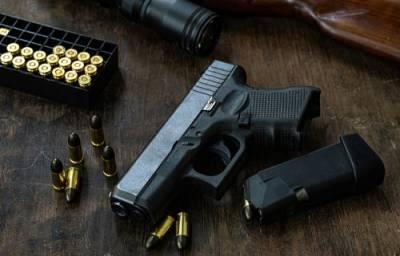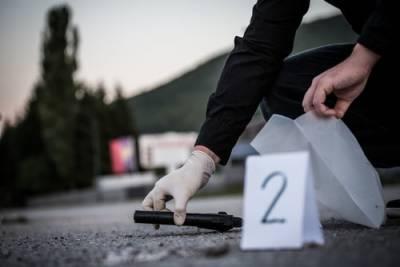Recent Blog Posts
What Does it Mean to Face Federal Criminal Charges?
 Facing federal criminal charges can be a very overwhelming and intimidating experience for anyone involved in the legal system. These charges differ significantly from state-level or local offenses due to the jurisdiction and the severity of the consequences involved. Today, we will explore what it actually means to face federal criminal charges – from the initial investigation to potential outcomes – providing you with a comprehensive overview. For legal assistance in this very serious matter, contact a criminal defense attorney to protect yourself legally against the very serious charges you now face.
Facing federal criminal charges can be a very overwhelming and intimidating experience for anyone involved in the legal system. These charges differ significantly from state-level or local offenses due to the jurisdiction and the severity of the consequences involved. Today, we will explore what it actually means to face federal criminal charges – from the initial investigation to potential outcomes – providing you with a comprehensive overview. For legal assistance in this very serious matter, contact a criminal defense attorney to protect yourself legally against the very serious charges you now face.
Understanding Federal Law Jurisdiction
The first crucial aspect to understand is that federal crimes are those that violate U.S. federal laws. They cover a wide range of offenses, such as drug trafficking, immigration violations, white-collar crimes, organized crime, terrorism, and more. The engaging factor in these cases is that federal agencies, such as the Federal Bureau of Investigation (FBI) or the Drug Enforcement Administration (DEA), often handle federal investigations and are the ones who ultimately bring charges.
What Constitutes the Trafficking of Firearms in Texas?
 Gun trafficking or smuggling is a federal criminal offense that involves buying and selling firearms through illegal channels. Such activities are considered grave offenses in Texas and thus qualify as federal gun crimes under the law. Gun trafficking ultimately contributes to gun violence in communities, often leaving a wake of devastation in towns across Texas. Individuals convicted of gun trafficking may face significant prison sentences, leading to federal investigations that often lead to additional charges. If you have been charged with gun trafficking, you need a criminal defense attorney not afraid to help you fight these heavyweight charges.
Gun trafficking or smuggling is a federal criminal offense that involves buying and selling firearms through illegal channels. Such activities are considered grave offenses in Texas and thus qualify as federal gun crimes under the law. Gun trafficking ultimately contributes to gun violence in communities, often leaving a wake of devastation in towns across Texas. Individuals convicted of gun trafficking may face significant prison sentences, leading to federal investigations that often lead to additional charges. If you have been charged with gun trafficking, you need a criminal defense attorney not afraid to help you fight these heavyweight charges.
Gun Trafficking in Texas
The FBI and ATF have primary responsibility for identifying and shutting down illegal gun trafficking networks. Federal law defines gun trafficking as a profit-based offense or business. Usually, gun trafficking leads to increased crime since, through such trafficking, guns end up in the hands of people who should not have access to weapons. It is widely believed that gun trafficking is an accelerant to violent crime, including gang-related criminal activity.
What Are Most Important Factors to Know About Bank Fraud?
 Bank fraud is one of the most serious white-collar crimes, covering various criminal activities against banks or other financial institutions. If you are facing bank fraud charges, you may be overwhelmed with what you should do to remedy this situation. While there is no snap-of-the-finger solution to rid you of your legal troubles, contacting a criminal defense lawyer can significantly benefit you and your case as you fight to defeat these severe charges.
Bank fraud is one of the most serious white-collar crimes, covering various criminal activities against banks or other financial institutions. If you are facing bank fraud charges, you may be overwhelmed with what you should do to remedy this situation. While there is no snap-of-the-finger solution to rid you of your legal troubles, contacting a criminal defense lawyer can significantly benefit you and your case as you fight to defeat these severe charges.
Here is What to Know About Bank Fraud
Bank fraud typically entails an individual or company attempting to commit fraud against a bank through false statements or illegally obtaining money from the bank. This type of fraud is a serious crime and, if found guilty, can land someone in prison for extended periods of time while also imposing steep fines on the convicted party.
It is essential to understand that bank fraud can occur in various ways through the assistance of bank insiders in positions of trust, such as bank managers or employees. It can include a senior manager providing false information about the company's finances to secure bank loans, handling money from a bank transaction deceitfully, misrepresenting information crucial to banking, making false promises and pledges of assurance in obtaining loans or extending credit, and diverting bank funds secretly into your personal bank account. These examples are typical forms of bank fraud, and all could result in severe consequences if discovered.
Defending Against Manslaughter Charges in Texas
 In Texas, manslaughter is a very serious second-degree felony offense that carries with it severe penalties and the possibility of a lengthy jail term. If you have been charged with manslaughter, it is essential you understand the severity of the situation. It is strongly recommended that you contact a criminal defense attorney, as this may be your only hope of fighting these charges and pursuing a favorable outcome in your case. Criminal defense attorneys are well-equipped with the knowledge necessary to build a legal defense against violent crimes like manslaughter.
In Texas, manslaughter is a very serious second-degree felony offense that carries with it severe penalties and the possibility of a lengthy jail term. If you have been charged with manslaughter, it is essential you understand the severity of the situation. It is strongly recommended that you contact a criminal defense attorney, as this may be your only hope of fighting these charges and pursuing a favorable outcome in your case. Criminal defense attorneys are well-equipped with the knowledge necessary to build a legal defense against violent crimes like manslaughter.
What to Know About Manslaughter in Texas
Manslaughter is defined in Texas as recklessly causing the death of another person. As stated at the outset, manslaughter is prosecuted as a second-degree felony, which can result in a prison term of between two and 20 years. However, if found guilty, the sentence you may receive will depend on several factors, most importantly, the circumstances surrounding the incident.
I Was Charged with Simple Assault After a Bar Incident. What Should I Do?
 In its severest form, Texas law defines simple assault as an act where someone intentionally or knowingly causes bodily injury to another individual. In Texas, the most severe simple assault charge is that which results in the bodily injury of the sufferer as a Class A misdemeanor offense, carrying up to one year of jail time and fines reaching $4,000. A conviction of this offense can have many adverse consequences, including damaging your reputation, affecting your future job prospects, and alienating or losing close personal friends. However, with effective criminal legal representation, you can give yourself a chance to fight the charges and pursue a favorable case outcome.
In its severest form, Texas law defines simple assault as an act where someone intentionally or knowingly causes bodily injury to another individual. In Texas, the most severe simple assault charge is that which results in the bodily injury of the sufferer as a Class A misdemeanor offense, carrying up to one year of jail time and fines reaching $4,000. A conviction of this offense can have many adverse consequences, including damaging your reputation, affecting your future job prospects, and alienating or losing close personal friends. However, with effective criminal legal representation, you can give yourself a chance to fight the charges and pursue a favorable case outcome.
Considerations for a Simple Assault Charge
Picture this: you are in a bar with friends when suddenly, you hear a bar patron berating your friend over the color shirt they are wearing. Upset, you spin around, and will all your might; you aggressively shove the person, only for them to fall flat on their back and hit their head on a bar stool. As the bar patron lies bleeding on the floor, writhing in pain, the police are called, and you are arrested for simple assault.
What Are Some of the Most Common Internet Sex Crimes?
 The internet has revolutionized the way we communicate, work, and live. Unfortunately, it has also opened up new avenues for criminal activity and forms of sexual misconduct, abuse, and exploitation. If you have been charged with committing an internet sex crime, you must obtain legal counsel from a knowledgeable criminal defense attorney. This will ensure your rights remain protected and that you can fight the charges against you to try and secure a positive outcome in your case.
The internet has revolutionized the way we communicate, work, and live. Unfortunately, it has also opened up new avenues for criminal activity and forms of sexual misconduct, abuse, and exploitation. If you have been charged with committing an internet sex crime, you must obtain legal counsel from a knowledgeable criminal defense attorney. This will ensure your rights remain protected and that you can fight the charges against you to try and secure a positive outcome in your case.
Typical Sex Crimes Committed on the Internet
The following are some of the most common internet sex crimes, including:
- Online solicitation of a minor – This refers to using the internet to contact a minor intending to engage in sexual activity. This may include sending sexually explicit messages, images, or videos. This is a severe offense that carries serious penalties.
- Possession or distribution of child pornography – This refers to the act of obtaining or sharing sexually explicit images or videos of minors. This includes all forms of media, including photos, videos, and audio recordings.
What to Look for When Hiring a Criminal Defense Attorney
 Navigating the complex world of criminal law can be an overwhelming experience, especially if you need a criminal defense attorney. Choosing suitable legal representation is crucial, as it can directly impact the outcome of your case. Therefore, those facing criminal charges must know the essential considerations for selecting a criminal defense attorney.
Navigating the complex world of criminal law can be an overwhelming experience, especially if you need a criminal defense attorney. Choosing suitable legal representation is crucial, as it can directly impact the outcome of your case. Therefore, those facing criminal charges must know the essential considerations for selecting a criminal defense attorney.
Here is What You Should Look For
Consider the following factors when selecting a criminal defense attorney, including:
- Experience and expertise – One of the most important factors to consider when hiring a criminal defense attorney is their experience and knowledge in handling cases similar to yours. Criminal law is a vast field, and attorneys often specialize in specific areas, like DUI, drug crimes, white-collar crimes, and more. Ensure the attorney you choose has a track record of successfully representing clients in cases like yours.
What Legal Defense Strategies Exist for Overcoming a Sex Crime Charge?
Being charged with a sex crime is a gravely serious matter with devastating lifelong consequences, particularly if you are convicted of the alleged offense. Penalties can include imprisonment, like registering as a sex offender, and fatal damage to your personal and professional reputation. Therefore, it is essential to hire a criminal defense attorney if you have been charged with a sex crime, as your freedom may very well be hanging in the balance. Today, we will review different legal defense strategies a qualified criminal defense attorney can employ to increase your chances of a favorable outcome.
Common Defense Strategies for Defending Against a Sex Crime Charge
Let us now review some of the most common defense strategies that may be implemented in your defense depending on the particularities of your case, including:
- Questioning the accuser’s credibility – One of the most common defense strategies in sex crime cases is challenging the accuser’s credibility. This can involve scrutinizing their history, motives, and any inconsistencies in their statements. In addition, an experienced attorney will look for discrepancies in the accuser’s story, such as any contradictory statements made to law enforcement, medical professionals, or witnesses.
Understanding What a Plea Bargain Is
 In Texas, as in many other states, a plea bargain is a standard tool used in criminal cases to resolve charges without going to trial. A plea bargain is an agreement between the defendant and the prosecution where the accused party pleads guilty to a less severe offense or accepts a reduced sentence to avoid a trial and the risk of a harsher sentence if convicted. Today, we will discuss what is most important about plea bargains. If you are ever charged with a crime and are interested in your legal options, contacting an experienced criminal law attorney may be wise to ensure you understand your legal options moving forward.
In Texas, as in many other states, a plea bargain is a standard tool used in criminal cases to resolve charges without going to trial. A plea bargain is an agreement between the defendant and the prosecution where the accused party pleads guilty to a less severe offense or accepts a reduced sentence to avoid a trial and the risk of a harsher sentence if convicted. Today, we will discuss what is most important about plea bargains. If you are ever charged with a crime and are interested in your legal options, contacting an experienced criminal law attorney may be wise to ensure you understand your legal options moving forward.
Types of Plea Bargains
For the sake of this blog, we will be discussing two types of plea bargains: charge and sentence bargaining. Whereas charge bargaining involves the accused party pleading guilty to a less severe charge than the one they were initially charged with. For example, a defendant charged with burglary may plead guilty to criminal trespassing instead. Sentence bargaining involves the defendant pleading guilty to the original charge in exchange for a reduced sentence.
What Can a Criminal Defense Lawyer Do for Me?
 If you are convicted of a criminal offense, the consequences can be wide-ranging. Some convictions may result in probation, while others may require significant jail time. Some offenses may result in minor fines, while others may result in hefty fines that can be burdensome to those required to pay them. A criminal defense lawyer is often essential in ensuring your rights will be protected after you have been charged with a crime. Your attorney is an invaluable resource when you are facing criminal charges and looking to protect your rights while avoiding a conviction
If you are convicted of a criminal offense, the consequences can be wide-ranging. Some convictions may result in probation, while others may require significant jail time. Some offenses may result in minor fines, while others may result in hefty fines that can be burdensome to those required to pay them. A criminal defense lawyer is often essential in ensuring your rights will be protected after you have been charged with a crime. Your attorney is an invaluable resource when you are facing criminal charges and looking to protect your rights while avoiding a conviction
If you are facing criminal charges, do not hesitate to contact an experienced criminal defense attorney who will advocate for your rights and best interests as you move through the legal process.
How Can a Criminal Defense Lawyer Help With My Case?
Lawyers are deeply knowledgeable in the procedures followed in criminal courts, and they also understand the specific laws that will apply in your case. Here are several ways a criminal lawyer may be able to help in your situation:





